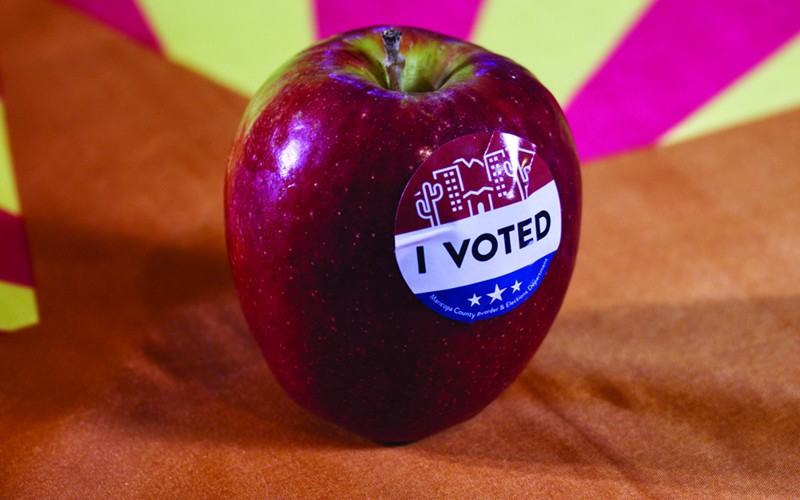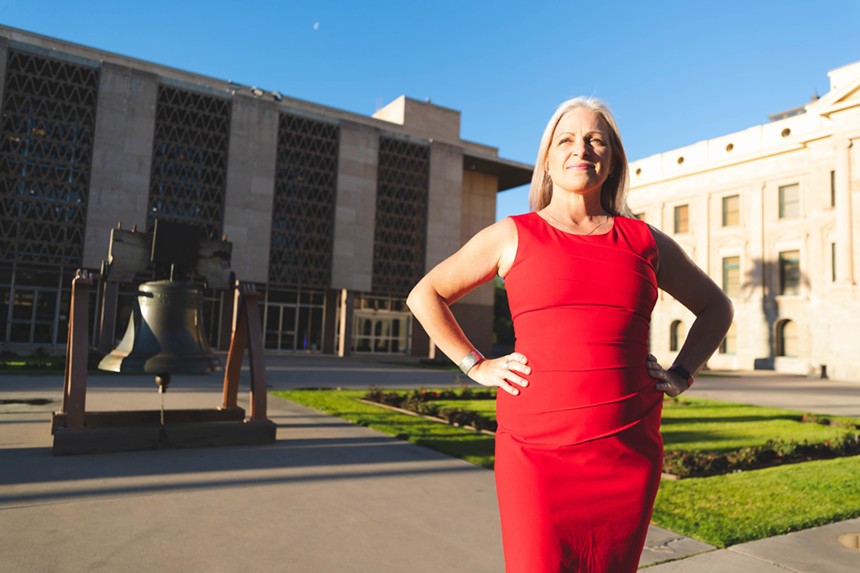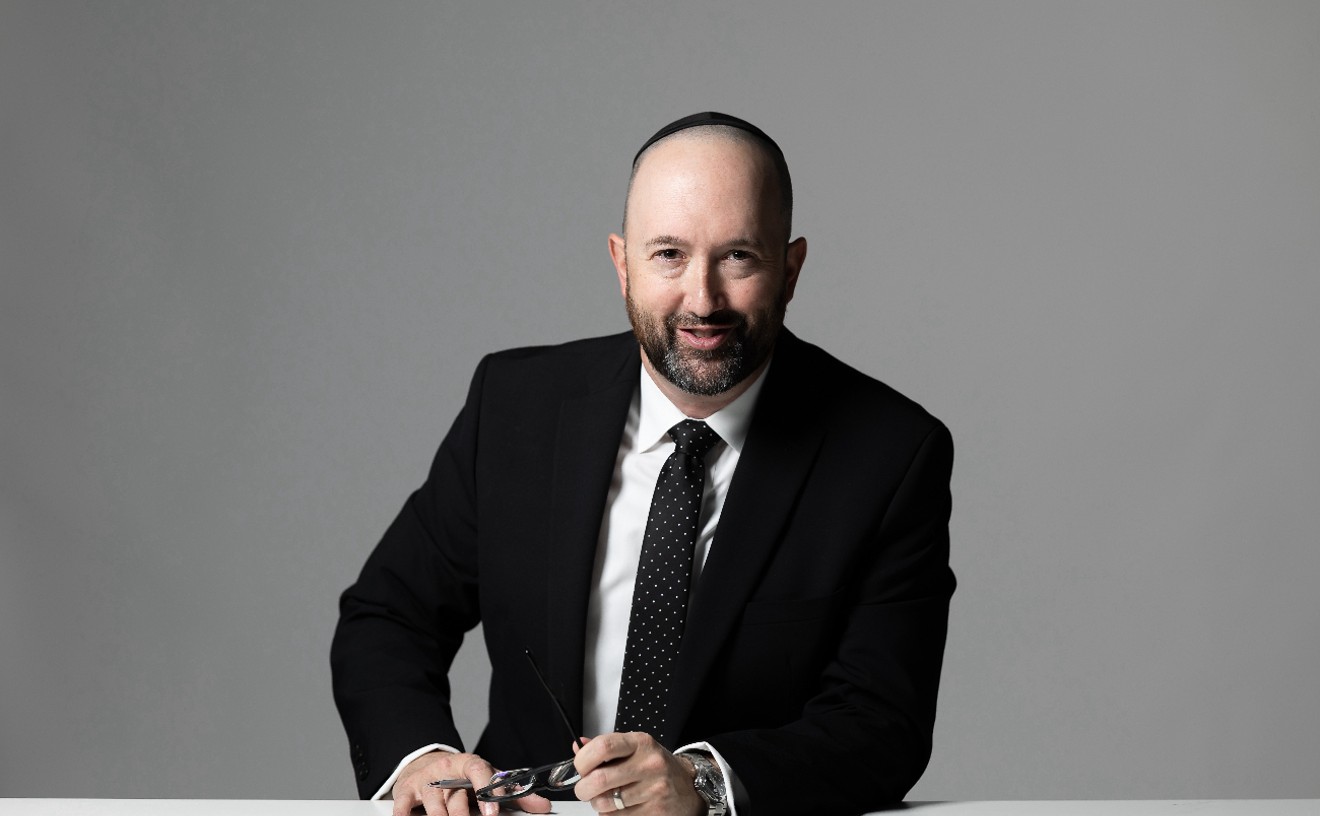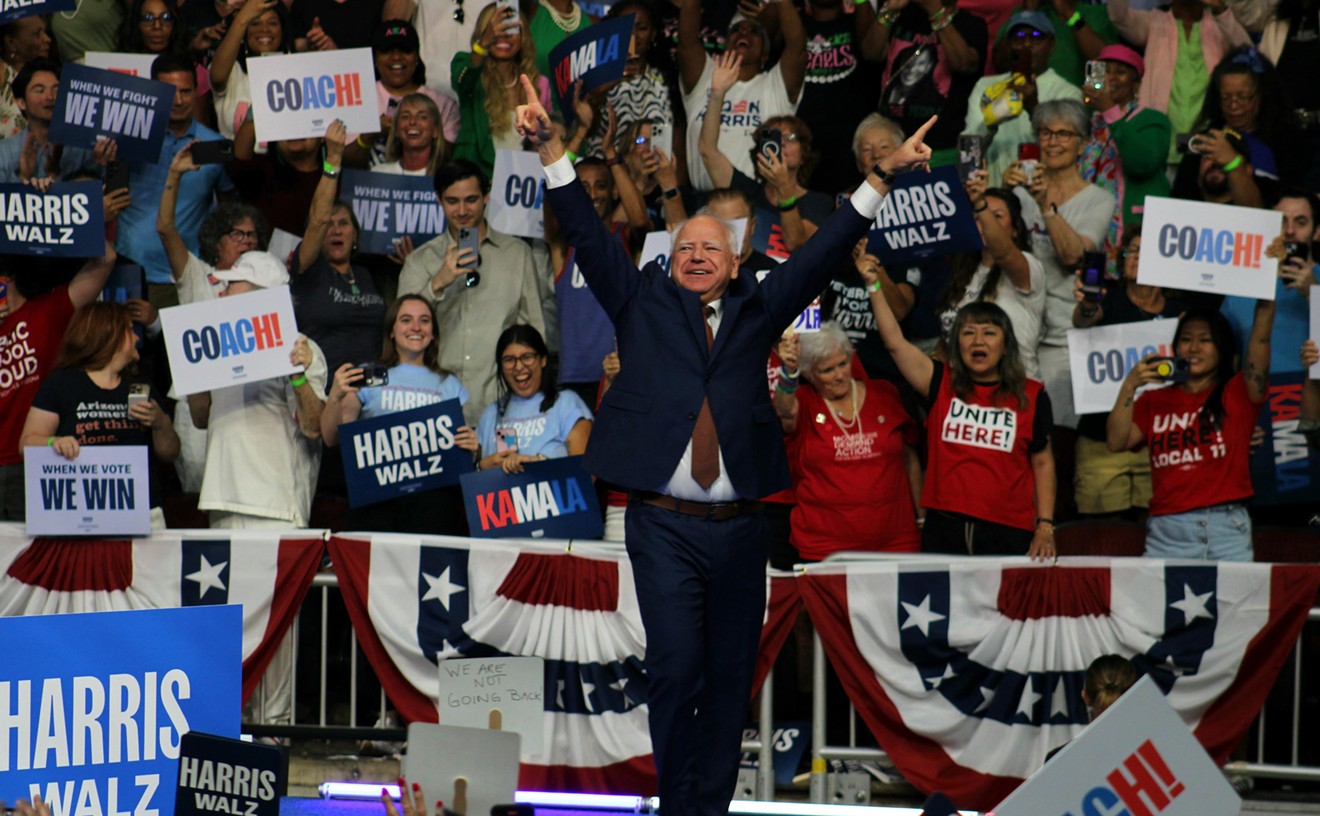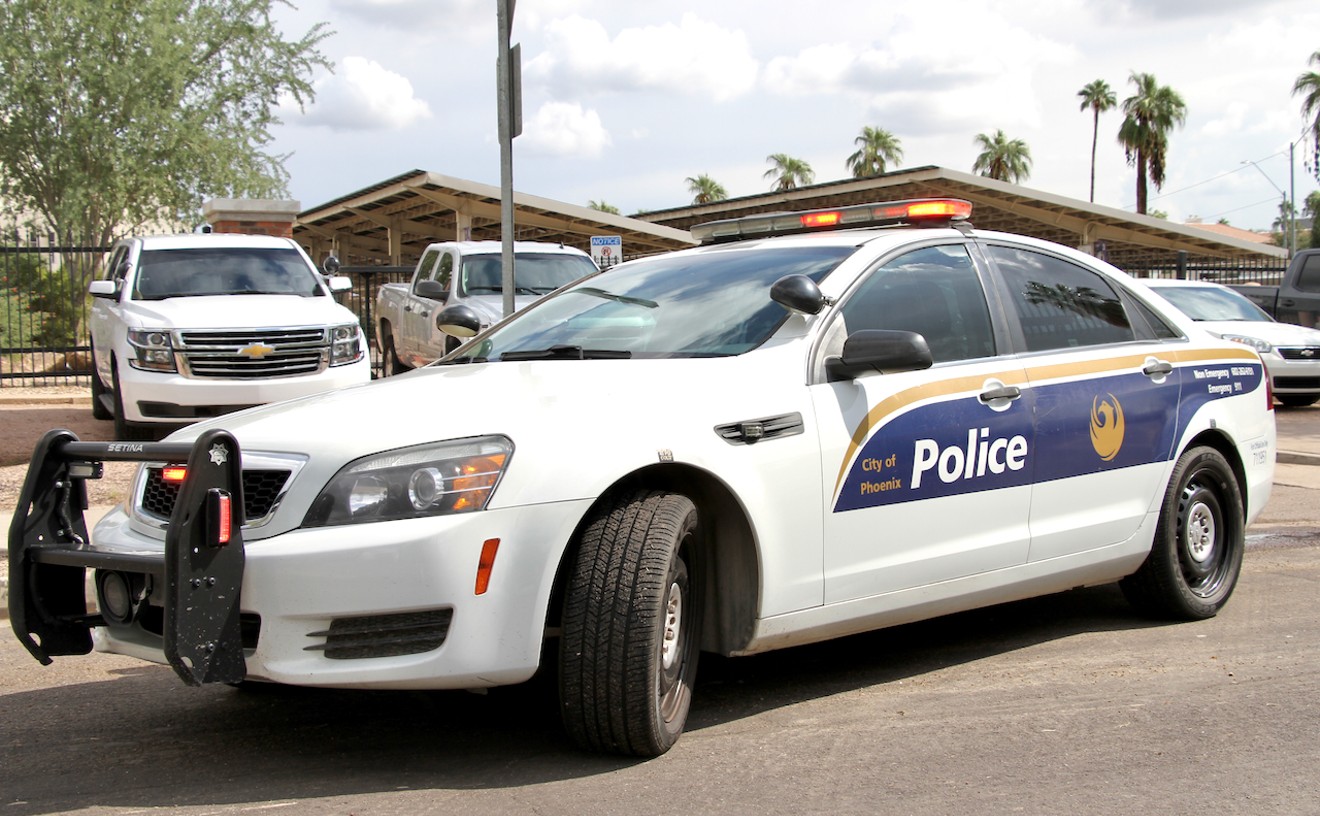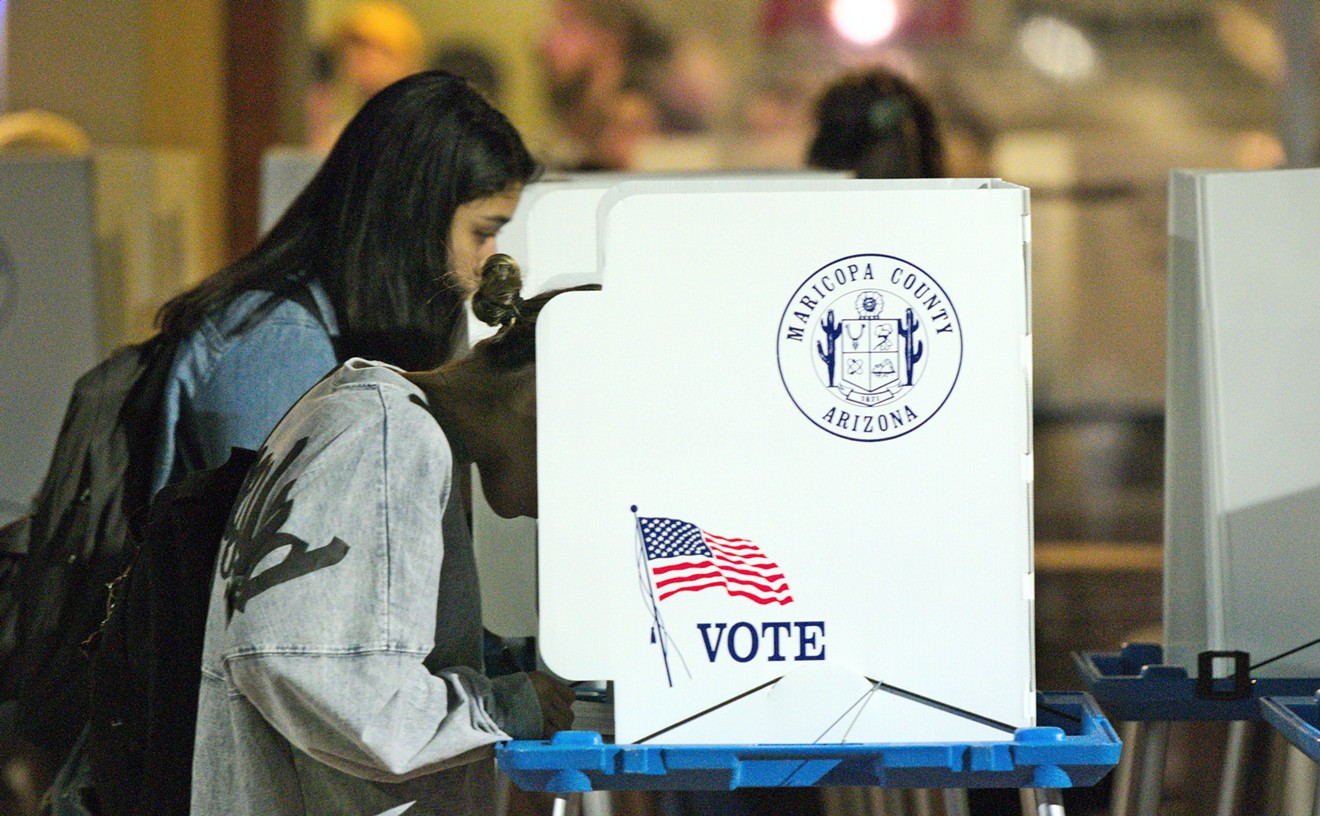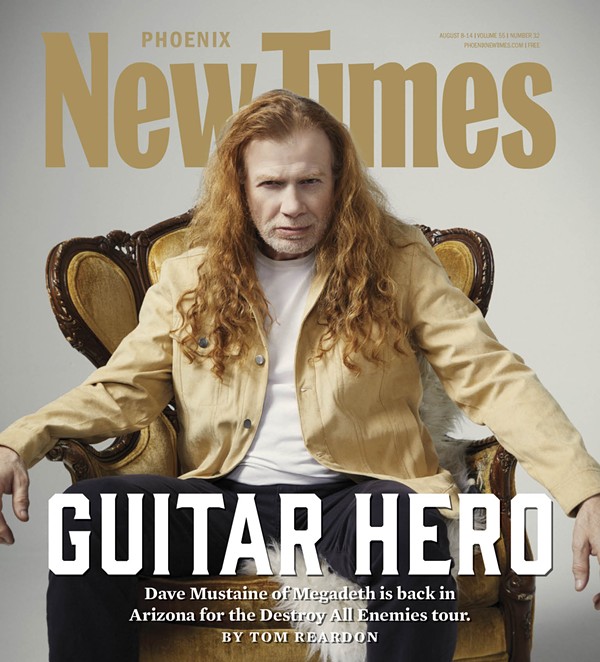During the last midterm elections in 2018, more than 40 candidates with a background in education vied for seats in the Arizona Legislature, double the national average, and set a record at the time in Arizona. This year, the election cycle started with 72. Fed-up teachers are sending a message — they want better teacher pay, smaller class sizes, more experienced teachers, and more emphasis on early childhood education and access to mental health resources — and are willing to run for office to address their concerns.
More than half of the educators turned candidates are Democrats. Forty-one Democratic educators ran for seats in the state legislature this year, compared with just 11 in 2018. Of those 41, 22 made it past the primary and are on the November 8 ballot. Only four made it to the general election in 2018.
Among the 31 Republican educators that started this election season, 18 made it to the November election. Several of them are incumbent state lawmakers.
“Our legislative candidates are dedicated to improving educational outcomes for children, and that starts with strong public schools,” said Elsa O’Callaghan, executive director of the Arizona Democratic Legislative Campaign Committee. “We are so proud to have educators knocking on doors and speaking to voters across the state about Democratic candidates who are more interested in finding concrete solutions to support teachers and schools, not scoring political points on Twitter.”
Cindy Hans, a Chandler Democrat who’s gunning for a seat in the Arizona Senate, was a teacher and middle school principal in Scottsdale for more than 30 years. After retiring last year, she decided to throw her hat in the ring. She called the legislature the “legislative faculty” due to the number of educators turned candidates. “In my life, I have never seen this number of educators run for office,” she said.
Hans, whose campaign logo fittingly features a red apple, explained why she and so many of her contemporaries are suddenly attracted to the political arena.
“The growth in the interest of teachers getting involved in politics has been pretty organic,” Hans said. “There has always been this knowledge among teachers that the schools aren’t allowed to spend money unless it’s allocated by the government. So, let’s become part of the government.”
Poor Pay, Growing Vacancies
Arizona ranks 47th in quality of education and dead last among states in teacher pay. The average public school teacher salary in Arizona was $54,817 in September, which is nearly $12,000 below the U.S. average of more than $65,000While Arizona pays its teachers table scraps, the state has also watched as administrative and teaching vacancies increased annually since 2018.
At the end of the 2020-2021 school year, 5,813 administrative positions were unfilled, according to annual surveys conducted by the Arizona School Personnel Administrators' Association. By the beginning of the 2021-2022 school term, the number of vacancies had grown to 6,347.
More than 750 teachers quit in 2021. Since then, nearly 1,000 more teachers have resigned, according to the survey of 143 school districts and charter schools. More than 2,500 teaching jobs in Arizona remain vacant.
The ASPAA report found that roughly 1 in 3 teaching positions are open while more than 47 percent of vacancies are filled by teachers who don’t meet the state’s standard certification requirements. The Arizona State Retirement System estimated that an additional 20,266 teachers are eligible to retire at the end of the year. Because Arizona pays its teachers so poorly, many of them likely will.
Jeanne Casteen, a north Phoenix Democrat, is also running for a seat in the state Senate. Her daughter graduated from Arizona State University earlier this year with plans to teach high school social studies in her home state — a dream of hers since she was a child.
She simply couldn’t afford to follow her dream.
“She saw my struggles as a classroom teacher,” Casteen said. “She saw me living paycheck to paycheck. She saw the stress of classroom sizes of over 45 kids. Despite the fact that school districts were eager for her to sign a contract, she made the decision to move out of state.”
That’s a familiar story for Judy Schweibert, a Democrat running for the Arizona House. In 2020, while volunteering in a second-grade classroom in Phoenix, Schweibert became close with a teacher who worked three additional jobs to make ends meet before ultimately leaving the state.
“She doubled her salary in another state the very first year,” Schweibert said.
Republicans, too, have emphasized bumping teacher pay.
Matt Gress, a Republican running for the state House, isn't an educator, but his “Pay Teachers First” plan would give every Arizona public school teacher a $10,000 raise. He hasn’t said much publicly about where the new funds will come from as enrollment numbers continue to fall in public schools.
Gress has been a top aide to Republican Governor Doug Ducey for years but waited until his run for office to float his proposal to increase teacher pay.
“We’re a little bit wary. Where has he been for the past several years while we were crying out for this kind of investment?” Schweibert asked. “That proposal doesn’t provide any of the details that we need and I am suspicious that the Republican plan is to give teachers a $10,000 raise, but give it with money that’s already in the school district.”
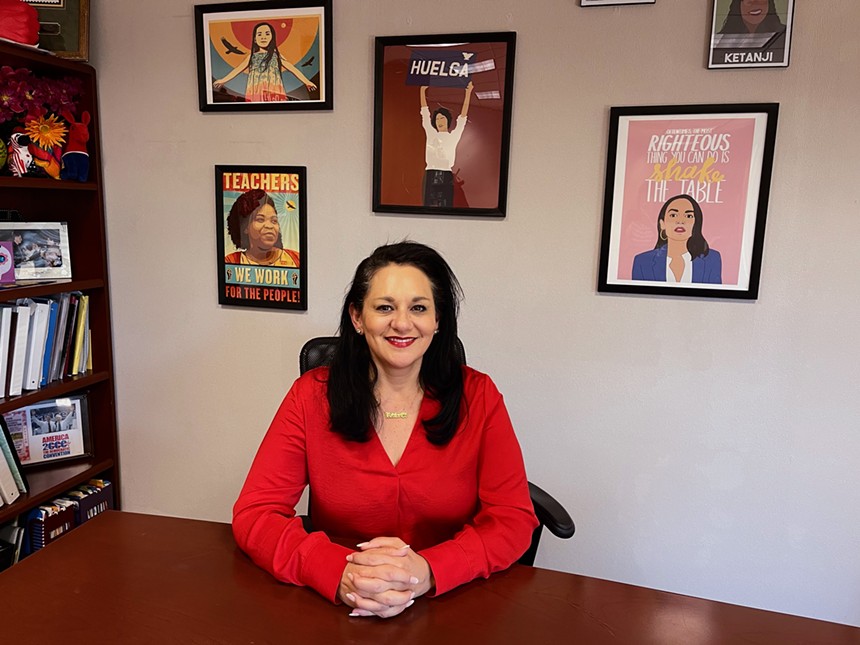
Marisol Garcia, president of the Arizona Education Association, said electing "education champions" to the state legislature will boost support for public schools.
Sheenae Shannon
Teacher Retention Crisis
While Ducey and a Republican-controlled legislature haven't addressed teacher pay, critics also accuse them of watering down the benchmark for new teachers. In July, the governor signed Senate Bill 1159 into law, allowing schools to recruit teachers without college degrees as long as candidates are enrolled in a bachelor’s program. Ducey heralded the action as an ease on the state’s teacher shortage, but the result is that a growing number of Arizona teachers don't meet the standards of the Arizona Department of Education.Almost one-third of students do not have a permanent teacher, Schweibert added. “Our children deserve better," she said. "As a society, we deserve better.”
Ducey stands behind Senate Bill 1159 despite criticism from some educators who said it backfired.
State Representative Jennifer Pawlik, a Gilbert Democrat and veteran Arizona teacher who’s running for re-election, trains new teachers in the Arizona Teachers Academy. Last year, she had 23 students. This year, she has 12. That’s despite the more than 50,000 people in Arizona who are certified to teach but choose not to, she said.
“We do not have a teacher shortage in Arizona. We have a teacher retention crisis,” Pawlik said. “Teachers are standing up for themselves in new ways — like running for office.”
In 2010, Arizona legislators took an axe to public school funding and slashed the budget by $1.1 billion. Now, a decade and a $5 billion surplus later, that funding has yet to be restored. Arizona students get less money now than in 2008, a study found. Arizona has also made more cuts to public school funding since 2008 than any other state.
At the time, amid a bid for school board, Casteen “could see the vision that the other side had,” she said. And it wasn’t pretty. Taylor Kerby, a Casa Grande Democrat and school board member running for the state Senate, added that “the controlling party refuses to address the need for additional investments.”
That’s why the Arizona Education Association, a nonpartisan coalition of educators, students, activists, and parents, is backing the Democrats.
“Arizona educators know the stakes of this election,” said Marisol Garcia, president of the Arizona Education Association. “For years, we’ve been fighting for the funding and support our public school educators and students need. We know that the only way to do that is by electing education champions to our legislature.”
The organization and each of the Democratic candidates who spoke to New Times are also concerned about the impact of the state's massive expansion of the Empowerment Scholarship Account, which is the state's school voucher program. It allows all Arizona students access to taxpayer-funded vouchers of $7,000 for educational expenses outside of public schools, including private school tuition.
They said the voucher program is an effort to privatize public schools. An effort to trigger a ballot referendum about the voucher expansion failed earlier this year and the expansion took effect in September.
“Our Republican colleagues allow people to make money on the backs of our children and to indoctrinate them with their own conservative beliefs,” Schweibert said.
Casteen said Republicans are only interested in starting culture wars and “desperately demonizing public school teachers,” opening the gate for now-subsidized private schools to operate with little to no accountability as interest in the voucher program snowballs among conservative parents.
These private schools are cropping up everywhere. Turning Point USA, a conservative nonprofit that has a blooming romance with the alt-right, opened a private school in Phoenix this year that enrolls more than 600 students — each eligible for taxpayer-funded tuition subsidies. Schools like Turning Point Academy don’t need curriculum approval, have no school board, no standardized testing, and can expel anyone from the school for whatever reason.
Turning Point Academy did not respond to requests seeking comment from New Times.
“We must stop the attempt to divert funding from our public schools into the hands of private schools that lack critical accountability and oversight,” said Beth Lewis, director of the Save Our Schools Initiative, a Phoenix-based grassroots movement fighting back against voucher expansion.

Former teacher and principal Cindy Hans, a Chandler Democrat, is running for the Arizona Senate.
Cindy Hans
'Arizona Students Are Failing'
C.J. Karamargin, Ducey's top spokesperson, said it's way too early to judge an expanded voucher program that's still in its infancy."The governor’s office categorically rejects the idea that this is backfiring," Karamargin told New Times "Here we are, not quite six weeks past the effective date. For someone to say that it’s backfiring at this point is premature."
The voucher expansion has drawn the attention of "thousands of parents" around the state, but criticism of the program "flies in the face of reality," he said.
Stan Caine, a Republican and substitute teacher from Tucson, is leaving the classroom in favor of a run for state Senate this election cycle. He agreed that Arizona's public education system is in disarray, but argued that with declining enrollment in public schools and fewer students to "deal with," teachers and administrators shouldn't be asking for more money.
"Arizona students are failing," Caine said. "It is estimated that during the pandemic, nearly 20 percent of the students in southern Arizona were taken out of public schools by their parents and enrolled in private schools, charter schools, or home-schooled. That means 20 percent less students for public schools to house, educate, bus, and deal with. But school districts and teachers want more money."
Caine is running against Democrat Priya Sundareshan, yet another teacher who's leaving her classroom this year to run for office.

